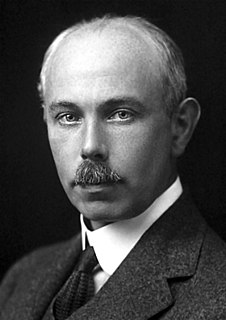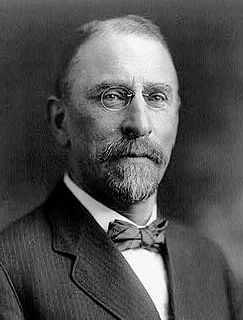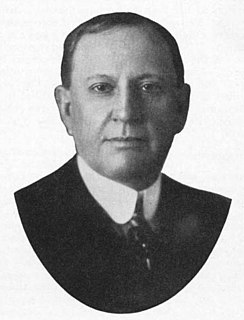A Quote by Francis William Aston
The cosmical importance of this conclusion is profound and the possibilities it opens for the future very remarkable, greater in fact than any suggested before by science in the whole history of the human race.
Related Quotes
The most remarkable discovery made by scientists is science itself. The discovery must be compared in importance with the invention of cave-painting and of writing. Like these earlier human creations, science is an attempt to control our surroundings by entering into them and understanding them from inside. And like them, science has surely made a critical step in human development which cannot be reversed. We cannot conceive a future society without science.
When the Turkish authorities gave the orders for these deportations, they were merely giving the death warrant to a whole race; they understood this well, and, in their conversations with me, they made no particular attempt to conceal the fact… I am confident that the whole history of the human race contains no such horrible episode as this. The great massacres and persecutions of the past seem almost insignificant when compared to the sufferings of the Armenian race in 1915.
Science fiction is the branch of literature that deals with the effects of change on people in the real world as it can be projected into the past, the future, or to distant places. It often concerns itself with scientific or technological change, and it usually involves matters whose importance is greater than the individual or the community; often civilization or the race itself is in danger.
All life is rife with possibilities. Seeds have possibilities, but all their tomorrows are caught by the patterning of their life cycle. Animals have possibilities that are greater than that of a fir tree or a blade of grass. Still, though, for most animals, the pattern of instinct, the patterns of their lives, are very strong. Humanity has a far greater range of possibilities, especially the very young. Who will children grow up to be? Who will they marry, what will they believe, what will they create? Creation is a very powerful seed of possibility.
It is arguable whether the human race have been gainers by the march of science beyond the steam engine. Electricity opens a field of infinite conveniences to ever greater numbers, but they may well have to pay dearly for them. But anyhow in my thought I stop short of the internal combustion engine which has made the world so much smaller. Still more must we fear the consequences of entrusting a human race so little different from their predecessors of the so-called barbarous ages such awful agencies as the atomic bomb. Give me the horse.
Unfortunately, 19th-century scientists were just as ready to jump to the conclusion that any guess about nature was an obvious fact, as were 17th-century sectarians to jump to the conclusion that any guess about Scripture was the obvious explanation . . . . and this clumsy collision of two very impatient forms of ignorance was known as the quarrel of Science and Religion.
My best wishes, in the joys, and festivities, and the solemn services of that day on which will be completed the fiftieth year from its birth, the independence of the United States. A remarkable epoch in the annals of the human race, destined in future history to form the brightest or the blackest page, according to the use or the abuse of those political institutions by which they shall, in time to come, be shaped by the human mind.
I believe that we are a story-driven species and that we understand how things are put together, in the context of narrative. It's a shame that science hasn't been taught that way, in a long time. It's usually the fact completely devoid of any human experience or any idea of how the scientist came to that conclusion.
We are beginning to realize that even the most fortunate people are living far below capacity, and that most human beings develop not more than a small fraction of their potential mental and spiritual efficiency. The human race, in fact, is surrounded by a large area of unrealized possibilities, a challenge to the spirit of exploration.





































